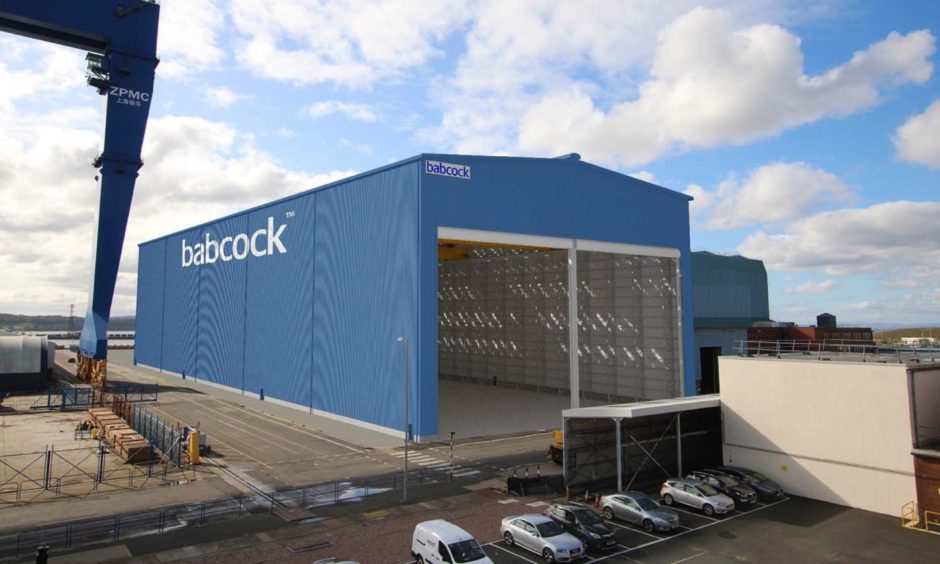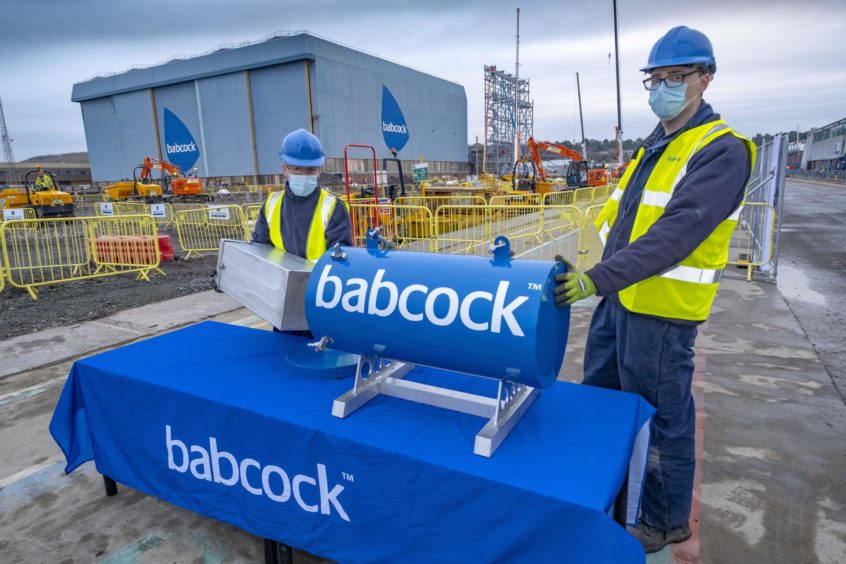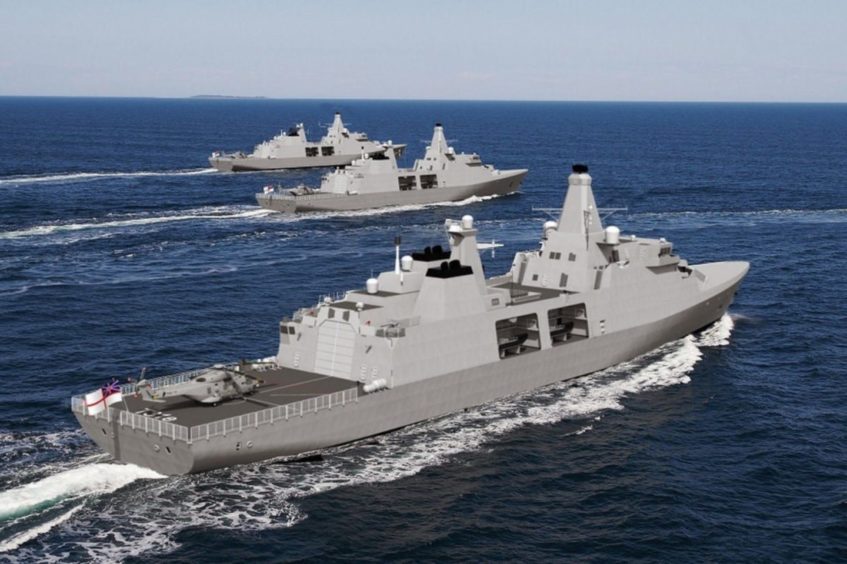The Babcock Rosyth investment has been described as a “step change in capacity and capability” for modern UK shipbuilding.
Defence firm Babcock has appointed Robertson to deliver the facility which will initially be used for the delivery of five Type 31 Frigates for the Royal Navy.
The £31.5 million contract to build a new assembly hall at Babcock Rosyth will support 200 jobs.
It is part of a £55m investment programme currently under way on the site, on top of a further £100m that has been invested over the last decade.
Heritage, experience and engineering insight
Babcock said it would ensure Rosyth’s shipbuilding capability and capacity can be optimised to support further opportunities, with state of the art engineering infrastructure and digital innovation at its heart.
John Howie, chief corporate affairs officer for Babcock said: “The infrastructure investment underway at Rosyth builds on our exceptional heritage, experience and engineering insight, delivering a very real step change in capacity and capability for modern UK shipbuilding.
“It’s great to see the progress being made across the programme as we invest in new infrastructure and technologies to support the build phase of these fantastic new frigates.”
The construction project will support around 100 jobs in Scotland and a further 100 positions nationally throughout the supply chain.
What is being built?
The hall measures 147 metres by 62m and 42m in height.
It has been designed to enable two vessels to be assembled side by side.
Free from weather disruption, it will provide Babcock with productivity gains through improved access, digital connectivity and protection from weather disruption.
Advancements inside the assembly hall include the use of handheld devices that will underpin the efficient flow of materials with lean thinking applied to all aspects of the build and operations.
Gantry stair access inside the structure also removes the need for traditional scaffolding, enabling safe access to the vessels without leaving the building.
At a small Covid-19 safe ceremony marking the beginning of the steel structure construction, Babcock also announced that it has placed an order for PEMA welding and production panel lines to support the automation of shipbuilding.
Robertson’s timeline for the work
David Cairns, regional managing director of Robertson Construction, said: “This contract award further illustrates our capabilities in the defence sector and we are delighted to be working with Babcock.
“Enabling works commenced in April and the main contract began in September.
“Phase one of piling is complete which enabled the steel structure to commence in mid-November, the facility will be completed in summer 2021 in order that ship assembly can commence.
“Throughout the assembly hall build we will be seeking to support local employment and spend where possible.
“We have already committed significant orders to local Scottish suppliers and created five new full-time roles which have been filled by members of the local community.”
Babcock marked the new assembly hall construction milestone by burying a commemorative time capsule at the site of the new facility.
What is the Type 31 frigate contract at Babcock Rosyth?
A £1.25 billion contract to build five new Type 31 warships in Fife for the Royal Navy is on schedule, on budget and will support around 2,500 jobs across the UK at the project’s peak.
Babcock International bosses have revealed that all five new vessels due to be constructed at Rosyth are on course for delivery by 2028, despite concerns about Covid-19 delays.
Around 400 people have been working on the programme, but that number is expected to rise to 1,250 direct roles at the height of the building work while a further 1,250 additional supply chain jobs will also be created or supported.
The Type 31s being built at Rosyth are based on the proven Iver Huitfeldt design first used by Denmark nine years ago, with adaptations to suit Royal Navy requirements.













